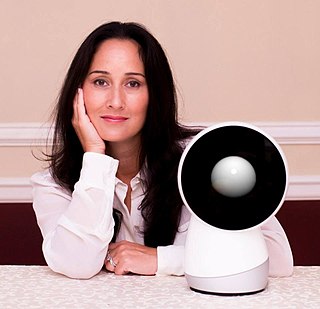A Quote by Sherry Turkle
Robots want to love us because the field of artificial intelligence has programmed robots to say they want to love us.
Quote Topics
Related Quotes
There are lots of examples of routine, middle-skilled jobs that involve relatively structured tasks, and those are the jobs that are being eliminated the fastest. Those kinds of jobs are easier for our friends in the artificial intelligence community to design robots to handle them. They could be software robots; they could be physical robots.
I want that love that moved the mountains.
I want that love that split the ocean.
I want that love that made the winds tremble.
I want that love that roared like thunder.
I want that love that will raise the dead.
I want that love that lifts us to ecstasy.
I want that love that is the silence of eternity.
Back in the twentieth century, we thought that robots would have taken over by this time, and, in a way, they have. But robots as a race have proved disappointing. Instead of getting to boss around underlings made of steel and plastic with circuitry and blinking lights and tank treads, like Rosie the maid on The Jetsons, we humans have outfitted ourselves with robotic external organs. Our iPods dictate what we listen to next, gadgets in our cars tell us which way to go, and smartphones finish our sentences for us. We have become our own robots.



































